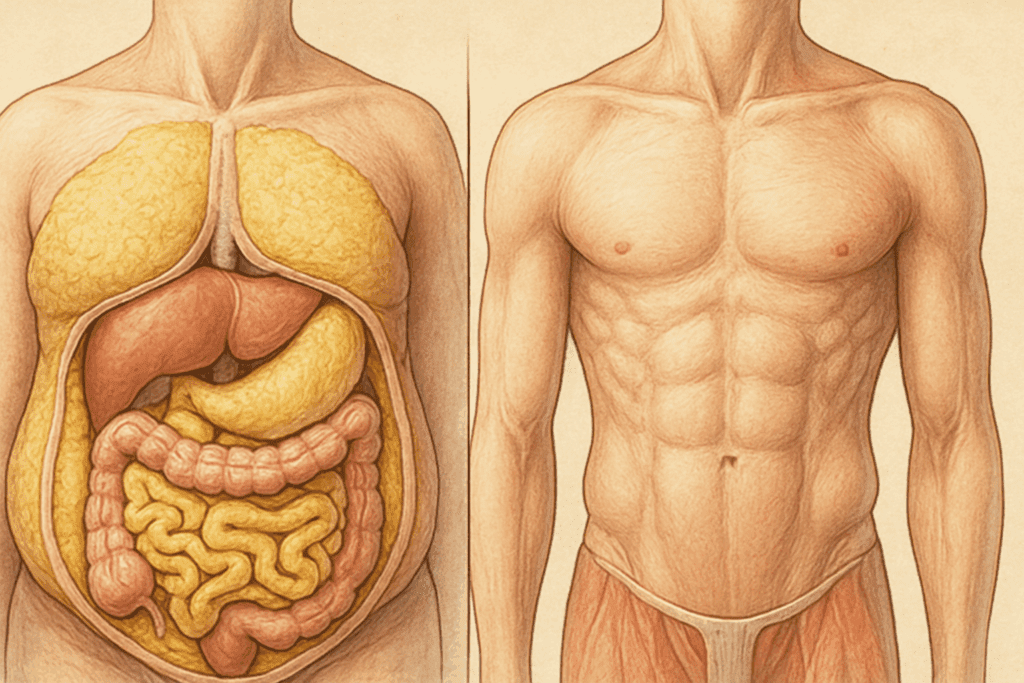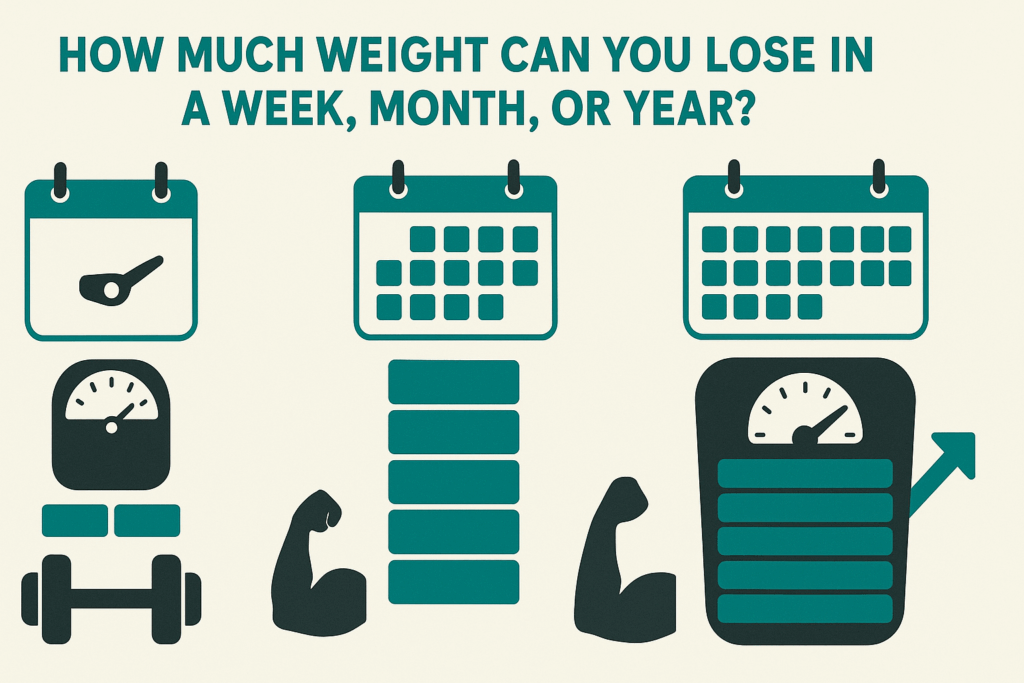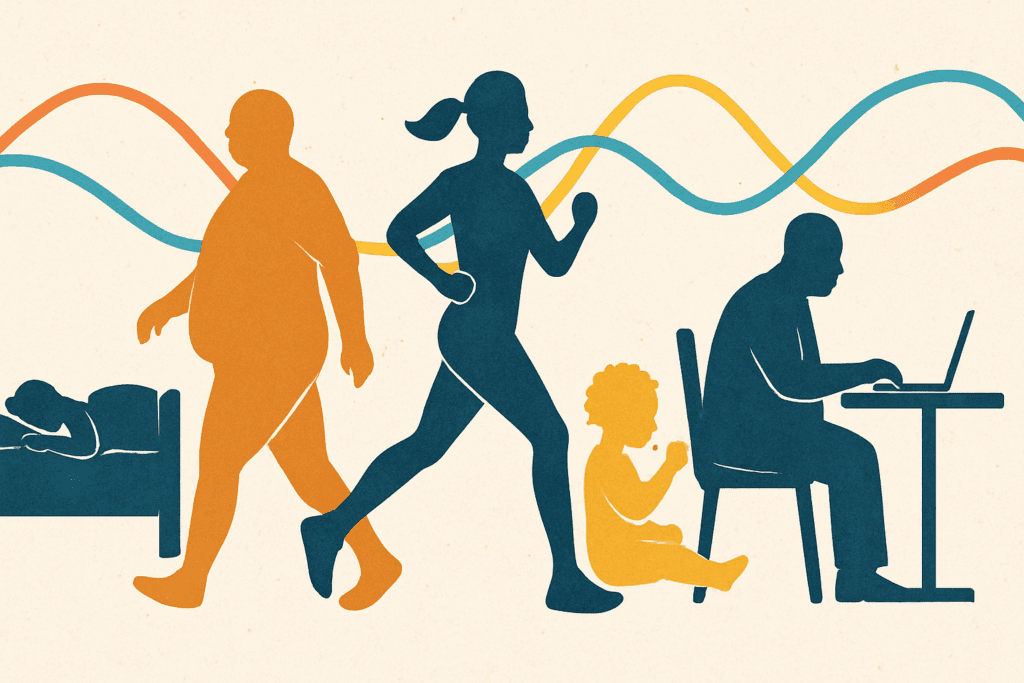Understanding the Journey: How Long Does It Take to Lose Weight Safely?
When embarking on a weight loss journey, one of the most common questions people ask is: how long does it take to lose weight safely? This question, while simple in form, opens the door to a complex web of physiological, psychological, and lifestyle considerations. The process of shedding pounds isn’t as straightforward as reducing caloric intake or increasing physical activity alone. It involves understanding how the body adapts, how metabolism shifts, and how sustainable changes in behavior can create long-term results. A safe weight loss journey prioritizes health, not just speed, which is why medical professionals emphasize a gradual, measured approach rather than extreme, rapid interventions.
You may also like: Expert-Backed Weight Loss Tips for a Healthier Lifestyle: What You Need to Know for Long-Term Weight Control and Wellness
In general, a healthy weight loss rate is about one to two pounds per week. This aligns with the principles of calorie deficit and metabolic adaptation. Losing more than that may initially seem desirable but can result in muscle loss, nutritional deficiencies, and a slower metabolism over time. The question of how many pounds can you lose in a week depends heavily on your current body composition, lifestyle, and whether your weight loss strategy is rooted in sustainable methods. When viewed through the lens of long-term success, the idea isn’t just to drop weight quickly—it’s to keep it off without compromising your health.
Medical experts emphasize that the key to lasting results is creating a lifestyle that supports fat loss over time. This includes adopting balanced nutrition, prioritizing sleep, managing stress, and finding a physical activity routine that is both enjoyable and effective. In understanding how long to lose weight, it becomes clear that there’s no universal timeline. Rather, the time it takes to lose weight safely is defined by consistency, patience, and individual biology.

The Science of Weight Loss: What Really Happens in Your Body
Before exploring timeframes, it’s essential to understand how does weight loss actually occur. At its core, weight loss results from a caloric deficit—burning more calories than you consume. But the body’s metabolic systems are far more nuanced than this basic equation suggests. When you consistently take in fewer calories than your body requires for maintenance, it begins to tap into stored energy—primarily fat. This is what leads to weight loss, particularly fat loss, though the process can also affect water stores and lean tissue depending on the diet and exercise strategy used.
Initially, people may see a sharp drop in weight due to glycogen depletion and water loss, which often leads to confusion about how much weight do you lose in a week. In the first one or two weeks, you might lose more than two pounds per week, but this isn’t necessarily fat—it’s primarily water. Over time, as the body adjusts and glycogen stores stabilize, the rate of weight loss slows and becomes more reflective of actual fat reduction.
Hormonal changes also play a role in regulating appetite and fat storage. As you begin to lose weight, levels of leptin, the hormone responsible for satiety, decrease, while ghrelin, the hunger hormone, increases. These hormonal shifts can make sustained weight loss more challenging, contributing to plateaus and rebounds if not carefully managed. This is why questions such as how long does it take to start losing weight or how long does it take to see weight loss must consider both visible and internal changes that are occurring.

Defining Healthy Weight Loss Per Week: What the Experts Say
A recurring benchmark in clinical guidelines is the recommendation to aim for healthy weight loss per week—typically between one and two pounds. This standard is not arbitrary; it is rooted in decades of research showing that this rate is associated with improved long-term outcomes, fewer side effects, and greater adherence to lifestyle changes. Trying to lose more than two pounds per week often results in unsustainable methods such as severe calorie restriction, which can lead to muscle loss, slowed metabolism, and increased risk of nutrient deficiencies.
So how many pounds can one lose in a week without compromising health? While it’s technically possible to lose five pounds or more in a week, especially in the early stages of a diet or following a very low-calorie plan, most of that weight is water and not fat. True fat loss occurs more slowly. Experts emphasize that slow, steady progress is more indicative of lasting success and metabolic adaptation. Moreover, consistent behavior change—like developing a routine for healthy meals or regular exercise—is more easily achieved at this pace.
This concept also explains the rationale behind questions like how to lose 1 pound a week or how can I lose one pound a week. The science behind losing one pound per week is straightforward: it generally requires a caloric deficit of about 500 calories per day. This can be achieved through a combination of dietary changes and increased physical activity. Over time, this steady, predictable approach allows the body to adjust without triggering counterproductive hormonal or psychological reactions.

The Role of Time: How Long Does It Take to Lose Fat?
Fat loss, unlike water loss, is a slow process. On average, one pound of fat equals approximately 3,500 calories. Therefore, if your goal is to lose one pound of fat per week, you need to burn—or avoid consuming—500 calories per day. This calculation is at the heart of discussions around how to lose one pound a week or how to lose a lb a week. But it’s not just about math; it’s also about biology. The body is constantly adapting, and as you lose weight, your caloric needs decrease. This makes continued fat loss more challenging over time.
A common frustration among individuals is not seeing results quickly enough, leading to questions like how long does it take to lose fat or how long does it take to start losing weight. In reality, visible fat loss can take several weeks, especially if you are losing weight slowly and healthfully. That’s why it’s important to track more than just the number on the scale—measurements, how clothes fit, energy levels, and even medical markers like blood pressure or insulin sensitivity can offer better insight into your progress.
Additionally, there are fluctuations in water retention, hormonal shifts, and stress responses that can mask fat loss. Someone could be losing fat but retaining water due to high sodium intake or elevated cortisol levels. This can complicate the perception of how much weight can I reasonably lose in a week. Experts stress the importance of patience and consistency during this phase, as true fat loss becomes more apparent over weeks, not days.

How Much Weight Can You Lose in a Week, Month, or Year?
Understanding short-term versus long-term progress helps set realistic goals. In the short term, especially during the first couple of weeks of a new diet or exercise plan, people often ask how much weight can you lose in a week or how many lbs can you lose in a week. As previously mentioned, a drop of one to two pounds per week is ideal, but those with more weight to lose may experience greater initial losses due to water reduction and inflammation decrease.
In terms of monthly goals, the healthy amount of weight to lose per month typically ranges from four to eight pounds. This pace supports fat loss while maintaining muscle and metabolic integrity. A realistic longer-term question would be how much weight can you lose in a year if you’re consistent with healthy habits. Losing one pound per week amounts to about 52 pounds in a year—an impressive and sustainable transformation for many.
One of the benefits of adopting this slow-and-steady mindset is that it minimizes the risk of regaining the weight. Crash diets may promise faster results, but the losses are rarely sustained. By contrast, gradual loss over months and years tends to reflect lifestyle changes rather than temporary efforts. Understanding this is key to success and helps people avoid common pitfalls in the weight loss cycle.

What Determines the Rate of Weight Loss?
Several factors affect how much weight can you lose in a week or over the course of your weight loss journey. These include genetics, starting body weight, hormonal health, age, sex, physical activity, and even sleep patterns. For instance, individuals with higher starting weights may initially lose more weight due to greater energy expenditure. However, as weight decreases, caloric needs decline, and weight loss naturally slows.
Age also influences how long does it take to lose weight. Metabolism generally slows with age, meaning that a caloric deficit needs to be adjusted accordingly. Hormonal changes, particularly in women during perimenopause and menopause, can also impact weight loss dynamics. This is why an individualized approach, often guided by a registered dietitian or medical professional, is so crucial.
Additionally, stress and sleep are frequently overlooked contributors. Chronic stress elevates cortisol, a hormone that can promote fat storage—especially around the abdomen—and poor sleep disrupts hunger hormones like leptin and ghrelin. These factors can interfere with efforts to lose weight after and before a major lifestyle shift or health milestone. Recognizing and managing these elements is critical to a sustainable, evidence-based weight loss strategy.

How to Lose a Pound a Week: Practical and Sustainable Methods
For those aiming to lose a pound a week, the approach must balance caloric reduction with lifestyle sustainability. This typically means creating a 500-calorie daily deficit through diet, exercise, or a combination of both. Instead of drastically cutting calories, which often leads to rebound eating, focus on nutrient-dense foods that are high in fiber, protein, and healthy fats. These help you feel fuller longer, making it easier to maintain a calorie deficit without hunger.
Increased physical activity plays an equally important role. Incorporating both cardiovascular exercise and resistance training supports fat burning and muscle retention. This is essential because muscle tissue is more metabolically active than fat, meaning it burns more calories at rest. Moreover, building lean muscle helps preserve metabolic rate as you lose weight.
Behavioral strategies are just as important. Tracking food intake, getting adequate sleep, managing stress, and surrounding yourself with supportive influences can dramatically impact your ability to maintain the consistency required for healthy weight loss. When people ask how can I lose 1 pound a week, it’s not just about what they eat or how much they exercise—it’s about the daily habits and routines that underpin long-term success.
How Much Weight Can You Lose in a Day?
Questions like how much weight can you lose in a day are often driven by curiosity or a desire for rapid results. While it is possible to see the scale move within a 24-hour period, this is rarely due to true fat loss. Instead, fluctuations in sodium intake, hydration, carbohydrate storage, and digestion are the primary culprits. For instance, eating a high-sodium meal can lead to temporary water retention, while a low-carb day might reduce water weight significantly.
In rare clinical circumstances, such as during fasting protocols under medical supervision, more significant daily losses might occur—but this is not typical or advisable for the general population. More importantly, any daily loss or gain is unlikely to reflect meaningful progress. That’s why focusing on trends over time, rather than daily shifts, provides a more accurate picture of your weight loss journey.
Thus, while you may see minor changes on the scale from one day to the next, these do not represent fat loss. Experts advise looking at weekly averages and focusing on how you feel, how your clothes fit, and how consistent you are with your healthy habits.
How Long Does It Take to See Weight Loss Results?
The timeline for visible changes varies depending on several factors, including starting weight, body composition, and adherence to a consistent plan. Generally, people start to see weight loss results within two to four weeks, especially when following a well-balanced, calorie-controlled diet and regular exercise routine. However, internal markers such as improved energy levels, better sleep, and lower blood pressure often appear even sooner.
The more consistently you adhere to your plan, the sooner you’re likely to notice changes. Still, the answer to how long does it take to see weight loss is different for everyone. Some may feel better within days, while others may need several weeks before external changes become apparent. The key is not to lose motivation during the early phase where progress may not be immediately visible.
This is also why taking photos, measurements, and tracking non-scale victories can help maintain motivation. Weight loss is as much about improving quality of life as it is about numbers, and seeing tangible shifts in how you feel and function is often more rewarding than the scale alone.
Frequently Asked Questions (FAQ): How Long Does It Take to Lose Weight Safely?
1. Why do some people lose weight faster than others, even with the same diet and exercise routine?
Weight loss varies from person to person due to metabolic rate, body composition, hormonal function, age, and genetics. Two individuals can follow identical plans and still see different results because of these intrinsic biological differences. Someone with a higher percentage of lean muscle mass may burn more calories at rest, making it easier to achieve healthy weight loss per week. Additionally, stress levels and sleep quality play a major role in how the body responds to a calorie deficit. Understanding how long to lose weight isn’t just about tracking calories—it’s about recognizing how your unique physiology affects fat loss over time.
2. Can you speed up weight loss without compromising safety or sustainability?
It is possible to support faster—but still healthy—weight loss by optimizing lifestyle variables such as nutrient timing, strength training, and sleep hygiene. For example, focusing on resistance training can improve muscle mass, thereby enhancing metabolism and increasing the number of calories burned at rest. That said, most experts still recommend losing no more than two pounds weekly, which qualifies as normal weight loss per week. Even if you’re eager to know how many pounds can you lose in a week, going beyond the recommended threshold risks lean tissue loss and metabolic slowdown. Instead, improving metabolic efficiency through exercise and whole-food nutrition can make the process more effective without being extreme.
3. How can I manage weight plateaus that happen during a prolonged fat loss journey?
Weight plateaus are common after several weeks of consistent effort and can be mentally frustrating. They occur when the body adjusts to a lower calorie intake by slowing down the metabolic rate—a natural survival mechanism. If you’re wondering how long does it take to lose fat, keep in mind that the body doesn’t lose fat linearly. To break a plateau, you can try reverse dieting, temporary calorie cycling, or modifying your workout structure to re-stimulate your metabolism. When assessing how much weight can i reasonably lose in a week, it’s important to acknowledge that occasional pauses are expected and can even be beneficial for long-term adherence and success.
4. Is it realistic to aim for a 20- to 30-pound loss over a few months?
Losing 20 to 30 pounds in a few months is achievable for some individuals, but only under a medically supervised and highly disciplined plan. This range aligns with the upper end of healthy weight loss per week if consistently pursued over several months. However, for sustainable progress, most professionals recommend focusing on a healthy amount of weight to lose per month, generally five to eight pounds. If your goal is longer term—such as how much weight can you lose in a year—then a slower, steadier approach improves your odds of keeping the weight off. Safety, sustainability, and personal capacity should guide your pace.
5. Why don’t I see results right away, even if I follow everything correctly?
It’s completely normal not to see visible results immediately, even when you’re doing everything “right.” The question of how long does it take to start losing weight depends on variables like water retention, glycogen storage, inflammation, and hormonal balance. You might be losing fat internally before it’s noticeable externally, which is why the scale can be a misleading indicator of success. Instead of fixating on how long does it take to see weight loss, track body measurements, energy levels, sleep quality, and exercise performance. These indicators often improve before you notice a physical change, offering more meaningful feedback in the early weeks.
6. Is it possible to lose weight every single week without exception?
In theory, it’s possible to maintain consistent weekly weight loss, but in practice, fluctuations are inevitable. Fluid shifts, hormonal cycles (especially in women), stress, and even increased physical activity can affect your body’s short-term weight trends. If your goal is losing a pound a week, minor deviations shouldn’t be discouraging. Focus instead on your weight loss per week over a month or more, which gives a more accurate picture of long-term progress. Asking how can I lose 1 pound a week is helpful, but it’s equally important to remain flexible and resilient when your weekly data isn’t perfectly linear.
7. Are there specific strategies to help you lose weight after and before major life transitions?
Yes, preparing for events like weddings, reunions, or health diagnoses can serve as strong motivation, but the approach must still prioritize health. Timing matters—trying to lose weight after and before significant milestones requires careful planning to avoid last-minute crash diets. Incorporate small but consistent habits like cutting back on processed foods, increasing fiber intake, and prioritizing strength-based workouts to support a steady healthy weight loss rate. It’s also useful to work backward from your event date to estimate how many pounds can one lose in a week, which allows you to create a safe and achievable timeline.
8. What is the most effective approach to lose a pound a week without obsessing over calories?
While tracking calories can be helpful initially, it’s not the only method for achieving how to lose one pound a week. Prioritizing whole foods, managing portion sizes, and building meals around protein and vegetables can often eliminate the need for detailed calorie tracking. If you’re asking how can I lose one pound a week without becoming overly focused on numbers, consider focusing on food quality and consistency instead. Incorporating daily movement and reducing sedentary time are also powerful tools. Over time, intuitive eating supported by nutritional awareness becomes the most sustainable method to lose a lb a week safely and sanely.
9. Can someone lose weight in a single day, and does it count toward real progress?
Technically, yes—you can lose weight in a day, but this is rarely fat. When people ask how much weight can you lose in a day, the answer usually involves temporary water loss, bowel movements, or shifts in food volume. It’s important not to confuse these short-term changes with genuine fat loss. Instead, look at how much weight do you lose in a week to determine whether your habits are contributing to lasting change. Focusing too much on daily fluctuations can be discouraging and misleading; the emphasis should remain on trends and behaviors over time.
10. How does weight loss affect mental and emotional well-being over the long term?
The psychological aspect of weight loss is often underestimated but plays a crucial role in lasting success. As you work through the phases of fat loss, particularly during times when results are slow, it’s easy to become discouraged or critical. Understanding how long does it take to lose weight can help set realistic expectations, but it’s just as important to explore how your identity, self-worth, and stress management evolve during this process. People who focus on how much weight can you lose in a week may experience more burnout than those who set broader health-oriented goals. A mentally supportive environment, whether through counseling, support groups, or mindfulness practices, can enhance outcomes and make the journey more enriching and balanced.
Final Thoughts: Setting Realistic Expectations for Sustainable Weight Loss
Achieving a healthier body weight is a worthwhile goal, but it must be approached with patience, knowledge, and self-compassion. Understanding how much weight can you lose in a week, how long does it take to lose weight, and what is a healthy weight loss rate helps anchor your expectations in reality rather than wishful thinking. While it may be tempting to seek shortcuts, sustainable change always wins in the long run.
It is entirely reasonable to aim for losing a pound a week, to reflect on your weight loss per week, and to consider how much weight can I reasonably lose in a week without resorting to extreme methods. With this mindset, the path toward lasting health becomes less about deprivation and more about empowerment.
Whether your goal is to lose weight after and before a major event, or simply to improve your long-term wellness, consistency will be your greatest ally. And by committing to evidence-based strategies and embracing the process, you’ll not only reach your destination—you’ll build the resilience and habits to stay there.
Further Reading:
How much weight can you lose in a week?


